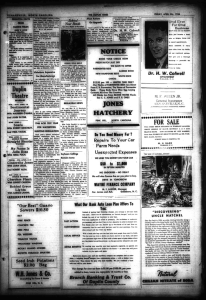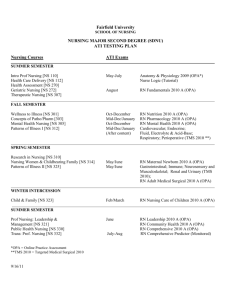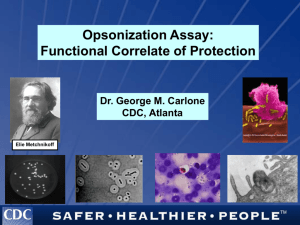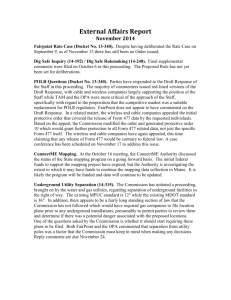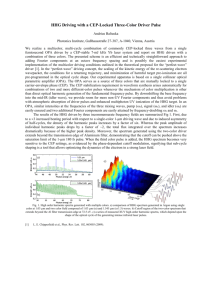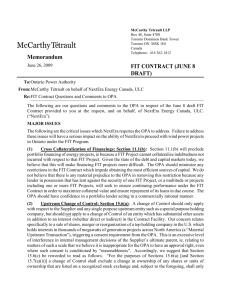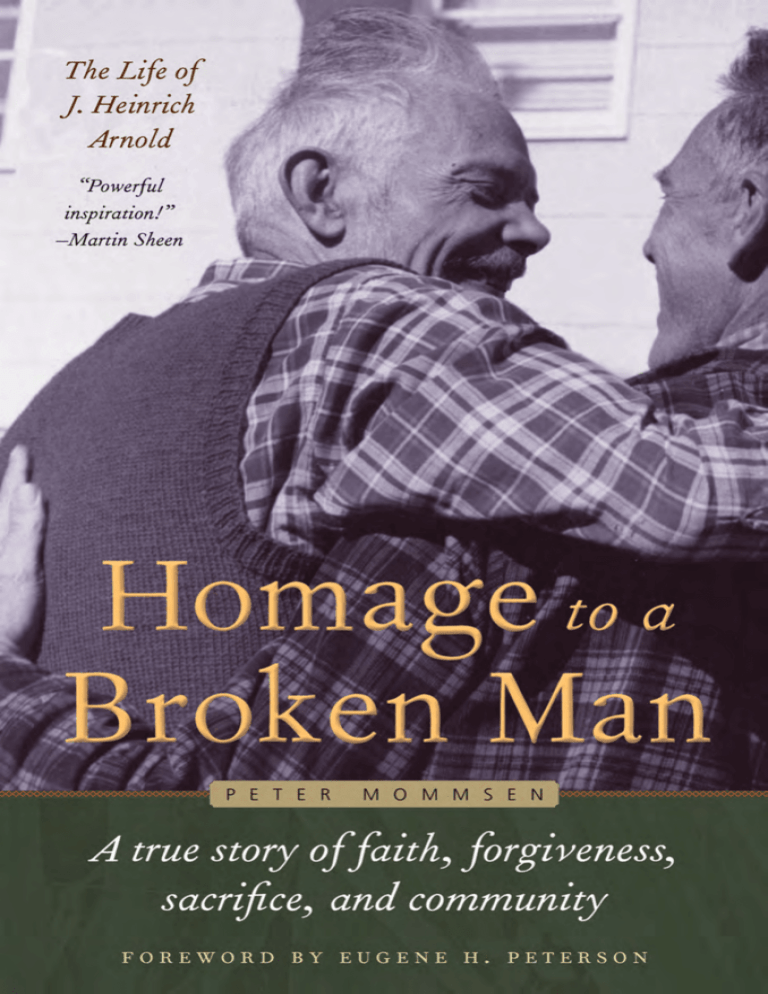
Peter Mommsen
Homage to a Broken Man
The Life of J. Heinrich Arnold
With a Foreword by Eugene H. Peterson
PLOUGH PUBLISHING HOUSE
Published by Plough Publishing House
Walden, New York
Robertsbridge, England
Elsmore, Australia
www.plough.com
Copyright © 2015 by Plough Publishing House
All rights reserved.
Print ISBN: 978-0-87486-613-1
Epub ISBN: 978-0-87486-599-8
Mobi ISBN: 978-0-87486-644-5
Pdf ISBN: 978-0-87486-645-2
A preliminary version of this book appeared in 2004 in a limited edition. The present 2015
edition is extensively revised and expanded, and now includes an essay on sources, an index,
and photographs.
The epigraph from Thornton Wilder is taken from his play The Angel That Troubled the Waters
(New York: Coward-McCann, 1928). The quotation is abridged.
Photographs courtesy of family collection. Copyright © 2015 by Plough Publishing House. All
rights reserved.
To Christoph and Verena
Without your wounds where would you be?
The very angels themselves cannot persuade the wretched
and blundering children of earth as can one human ­being
broken in the wheels of living. In love’s service,
only the wounded soldiers can serve.
Thornton Wilder
Contents
Foreword xi
Author’s Note xv
1. Opa 1
2. Revolution 9
3. Sannerz 20
4. Breakup 34
5. Conversion 40
6. The Sun Troop 45
7. Lotte 55
8. Father and Son 59
9. Adolescence 68
10. Tata 76
11. An Arrival 82
12. Nazis 90
13. Silum 104
14. Annemarie 112
15. The Farewell 118
16. Four O’Clock 127
17. The Last Letter 131
18. Refugee Wedding 138
19. Emmy Maria 143
20. Heliopher 153
21. Primavera 158
22. Repentance 173
23. Nightmares 182
24. Among Children 193
25. Banished 199
26. Leper Colony 206
27. Fatherhood 218
28. Marianne 226
29. On the Road 235
30. Changes 249
31. Woodcrest 260
32. The Crucible 279
33. Liberation 301
34. To the Finish 318
Epilogue 338
Photograph Album 341
Acknowledgments 375
Sources 377
Index 389
Foreword
Eugene H. Peterson
As a pastor, I have spent most of my adult life looking for
connections between the lives of those with whom I am living and
the stories of the men and women I read about in the Bible. Just as the
entire biblical revelation comes to us in the form of story, so today
nothing less than great storytelling is adequate to render the intricacy
of creation and redemption in our own lives.
Peter Mommsen’s new biography of his grandfather, Homage to a
Broken Man, tells a story worthy to take its place in the company of
the “greatest story ever told,” as an extension of that biblical story
into the circumstances of our contemporary lives. Today too, as in
the days of old, God calls out the most unlikely heroes, uses imperfect people for his glory, and remains faithful to his people no matter
how far they stray.
As I read this book lines from Psalm 118 came to mind: “The stone
that the builders rejected has become the cornerstone.” Anticipating
his imminent crucifixion, Jesus used these words to describe himself.
It struck me as an apt text to describe the “broken man” of this story
as well, a follower of Jesus who was also a “stone that the builders
rejected.” Though J. Heinrich Arnold never doubted his calling
to serve Christ in a common life together with this brothers and
sisters – he shepherded a fledgling movement of Christian communities through a cataclysmic chapter of history and its own turbulent
xi
xii u Homage to a Broken Man
growing pains – he would never have chosen to lead. Humble by
nature, mystical by bent, and a farmer by training, he was soon sidelined by more ambitious and manipulative men. We can be glad the
story doesn’t end there.
Another scripture this story will evoke, I must admit, is Jesus’
counsel to his followers as he prepares them for what will most
certainly come as they give witness to his new life of love and salvation:
“One ’s foes will be members of one’s own household” (Matt. 10:36).
This book will give you a whole new appreciation for Bonhoeffer’s
well-worn phrase, “the cost of discipleship.” It’s hard to believe what
Arnold put up with from those closest to him, but what emerges is an
exceptional personal story of faithfulness and forgiveness, one that in
turn rekindled the fires of first love in an entire church community.
One of the most soul-damaging effects of modern life is the obfuscation of story: the fragmentation of story into disconnected anecdotes,
the reduction of story to gossip, the dismemberment of story into lists
of formulae or rules. In most of the words that come before us each
day – delivered via television, internet, newspaper, billboard, and
gossip – there is rarely any story beyond the immediate event. There is
very little that connects to the past, reaches into the future, or soars to
the heights. Instead of connecting us with a deeper reality, such words
disconnect us, leaving us in a boneyard of incident and comment.
On the other hand, every time someone tells a story and tells it
well and truly, the gospel is served. Out of the chaos of incident and
accident, story-making words bring light, coherence, meaning, and
value. If there is a story, then maybe, just maybe, there is (must be!)
a Storyteller.
Baron Friedrich von Hügel, the Austrian writer and theologian,
was fond of saying, “There are no dittos among souls.” At school
I learned to marvel that no two snowflakes are alike, no two oak
leaves identical. How much more unique is each human being! A true
hearing of the gospel always takes in the specifically personal. “I have
Foreword u xiii
called you by name” (Isa. 43:1) has become an essential element both
in my personal life and pastoral vocation.
Meanwhile the culture in which we are immersed is constantly
at work eroding the uniqueness of named persons by giving them
labels: ectomorph, unsaved, anorexic, bipolar, single parent, diabetic,
left-brained. The labels are marginally useful for understanding some
aspect of the human condition, but the moment they are used to identify a person, they obscure the very thing I am most interested in: the
unprecedented, unrepeatable soul addressed by God.
Every time someone is addressed by name and realizes that in the
encounter they are being treated as one-of-a-kind – not as a customer,
not as a patient, not as a voter, not as a sinner – the gospel is served.
Saving love is always personally specific, never merely generic.
Christ’s mercy is always customized to an individual, never swallowed up in an abstraction.
A good writer gives us eyes to see past the labels, ears to hear
beneath stereotyping clichés. Peter Mommsen is such a writer. By
the time you finish the book you will have made a new friend in
J. Heinrich Arnold. In fact, this book introduces us to a whole cast of
characters whose stories can heighten our own awareness and sensitivity to the life of Christ being lived in us. If nothing else, I hope that
after reading Homage to a Broken Man you will never again doubt
that “in all things God works for the good of those who love him”
(Rom. 8:28).
Evil is not, as some think, the greatest mystery. The mysteries
of goodness and redemption far exceed it, but they can be entered
only when evil is faced. These mysteries become apparent when we
find companions like those brought to life in the pages of this book,
in communities like the Bruderhof, and in unassuming and patient
leaders like J. Heinrich Arnold.
Author’s Note
This book is the true story of one man’s quest to follow his
calling – a story of what Dietrich Bonhoeffer calls costly discipleship.
It’s not the tale of a saintly superhero: as the following pages make
plain, my grandfather was no stranger to weakness or failure. Still,
my aim has been to recount an exemplary life, one that I hope will
mean as much to the reader as it means to me.
In telling this story, my approach has been to focus on decisive
moments in my grandfather’s spiritual journey. This means, by way of
tradeoff, that I’ve sacrificed any attempt to be comprehensive, omitting dozens of people and episodes that might have earned a mention
in a more conventional biography. It means, too, that I’ve given most
attention to my grandfather’s formative years, so that much of the text
is essentially a series of portraits of the subject as a young man. (This
book makes no claim to be a history of the ­Bruderhof, the Christian
community in which he served as a pastor.)
My grandfather was never famous. During his life, his influence –
profound as it was for those who knew him – spread no farther than a
few thousand people. To write about such an ordinary, even obscure,
person goes against the starting assumption of traditional biography, a genre that was invented (to use Petrarch’s phrase) to record
the doings of “illustrious men”: history’s great statesmen, heroes,
geniuses, villains, and saints. My grandfather doesn’t fit the bill.
xv
xvi u Homage to a Broken Man
Why write his biography then, or read it? Because, I believe, his
story is universal – it’s a story that matters. His courage, humility, and
downright doggedness in following his calling, no matter the cost,
speaks to an inborn yearning shared by millions. If this is true, the
usual benchmarks that biographers apply to their subjects – success,
prominence, impact – suddenly seem beside the point, their value
relativized. As a certain rabbi said two thousand years ago, “The last
shall be first, and the first shall be last.”
Quotations and dialogue are based on participants’ recollection or
are reconstructed from written sources. In a handful of cases noted in
the index, I’ve changed the names of people whose role in the story
is minor.
1
Opa
The morning my grandfather died, I told everyone in my
kindergarten class, “Today Opa went to heaven!” My teacher, a longtime friend of our family, started to cry, but her tears made no sense to
me. Who wouldn’t be proud to have a grandfather in heaven?
Of course, I would miss him. Opa and Oma lived in an apartment in our house, and ever since Oma (my grandmother) had died
two years before, he had been sick and rarely left it. My mother, the
seventh of their nine children, is a doctor, and Opa had a buzzer by
his bed for calling her at night. She spent at least an hour or two in
his room every day, sitting at his bedside while I played on the floor. I
loved bouncing on his bed and – when he let me – on him. There was
a sort of trapeze suspended above his pillow that he used for pulling
himself up. It was perfect for swinging on, and then letting go of, to
land on his stomach.
On some afternoons my mother wouldn’t let me use the trapeze.
“Let Opa rest,” she’d say, and then I’d have to content myself with
just sitting next to him. It was probably on one of those days that I
noticed the little black cross that hung on his wall. It fascinated me,
though I didn’t know what I know now: that he had made it as a boy
for Tata, an aunt who had been like a second mother to him.
Opa listened to Bach by the hour. Whenever I hear Saint Matthew
Passion I’m transported back to the times I helped bring him his lunch.
1
2 u Homage to a Broken Man
He is sprinkling so much salt on the sliced tomatoes that they look
frosted, despite my mother’s protests. He grasps the teapot handle
with fingers twisted by disease. Having poured the tea, he heaps a
mound of saccharin tablets (he had diabetes) onto his spoon, and stirs.
When he told me he loved me, his words came out in a rich
tenor, unhasty and heavily accented. I loved his room and its smell –
asparagus, European cologne, burgundy. But what I loved most about
it was something a child would never think to speak of, let alone
explain. He simply drinks it in, eagerly and without question. Even as
an adult, I cannot really articulate it, except to say this: whatever it was
that drew me to his bedside was, for years, the most powerful thing in
my life – a sure point to return to when everything else went wrong.
Twelve years after Opa died, I sat in the hall of the Harvard Freshman
Union listening as President Neil Rudenstine prepared us for the rest
of our lives. “You’re the best there is, the crème de la crème,” he told
the 1,600 new freshmen, and I believed him with all my heart. For the
next three years I kept on believing. A tumor of the soul was gradually
taking over everything I thought and did. This was not Rudenstine’s
fault: he was only doing his job. But my arrival at college coincided
with the start of a new, aggressive phase of the disease.
I was funded by generous financial aid and became a moderately
successful student. I worked at the literary magazine, drank a lot
when I could, and proved my lack of talent at rugby and crew. On my
twenty-first birthday I woke up on a futon, hung-over from champagne and sweaty in a crumpled tuxedo, feeling hollow and desperate.
For years a sense of guilt had pursued me with a terrible constancy,
and I had managed to evade it. No longer.
Just then, when everything seemed at its cheapest and falsest, I
realized I had a choice to make. Either I could turn my back on any
integrity I had left, or I could stop, turn around, and retrace my path
until I got back to something I was sure of.
Opa u 3
And so I backtracked to my great-grandmother, Opa’s mother.
She is only an image in my mind. I see her descending the staircase on
her electric lift. She’s coming down from her apartment to our breakfast, where she will sit by Opa’s side, picking delicately at a boiled
egg in a cup.
I see Oma, too. She is warm and energetic and resolute in the way
she moves. She reads stories to us on the sofa, and never forgets to
bring a gift on birthdays or at Christmas. She is also strict. Once, at
breakfast, I disobeyed her. That is something Opa never tolerated,
not from his children, and not from his grandchildren either. Opa
said to my father, “Marcus, that boy needs a spank.” (I was barely
two, according to my mother’s diary.) But even at that moment I
wasn’t afraid of him. With Opa you were always secure.
Not long after, Oma is diagnosed with cancer. She lies on a sofa
in her living room where she can watch the neighborhood children
as they walk to and from school. She dies shortly before my fourth
birthday.
But most of all, I remember Opa. After Oma’s death, my cousin
Norann and I make him a Valentine out of shiny red paper. It is from
Oma, we tell him when we bring it to his room. Opa beams at us as
he takes it. He makes us sit on his bed, and tells us stories – about the
monkey he kept as a pet when he lived in South America; about the
time he had to drive a rich lady through a jungle in his horse wagon,
and the horse died. He is a great storyteller, smiling infectiously, surrounded by gales of laughter.
Looking back, I realize that many of my cousins knew Opa far
better than I. My mother says I would often refuse to show affection
to him. He had a candy dish on the dresser by his bed. Sometimes
I came down the hall to his room just for the candy, refusing even
to say goodnight to him. My parents were embarrassed, but he just
chuckled, “It’s OK, it’s a free country.”
When I was six I caught my first fish, a twelve-inch bass. I can still
feel the thrill as the red bobber went under. Someone cleaned it for
4 u Homage to a Broken Man
me, and (maybe because I hated fish) I suggested giving it to Opa. He
ate all of it. It was just a month before he died.
During his last days my mother forbade jumping on the bed, and
sometimes my cousins and I couldn’t even go in the room. Then
we would content ourselves with visiting him through the window.
Standing in the garden, we’d peer through the pane and sing his favorite songs. Sometimes he lay quietly, trailing oxygen tubes, his eyes
closed. At other times he’d gaze back at us, and smile or try to wave.
After Opa’s death, I came to accept that he was gone, but I never
forgot him. Everything I had experienced as a child lived on. As I
turned into a teen, though, life became more complicated, and he
grew more and more distant. I even began to chafe at his memory.
Sure, I’d always love him, but just who was he? I knew what he had
done for most of his life – he was a pastoral counselor, though he
would have hated the term. I also knew he had been highly regarded
for his sensitivity and humility. But that didn’t explain the riddle of
conflicting reactions to him. Why did the mere mention of his name
seem to polarize people even after he was gone?
Most adults I knew, including my father’s parents, loved Opa
deeply and spoke of him almost reverently. They claimed he was the
most significant person they’d ever met, that he had changed the whole
course of their lives. Others felt differently. One estranged cluster of
relatives was said to despise him and everything he stood for, even
though they hadn’t seen him in several decades. And then there was
the story about an attempt on his life by a man he had counseled years
before. The would-be sniper boasted that he had had Opa in his sights
before changing his mind and deciding not to pull the trigger.
At Harvard, despite what I had claimed in my application essay, love
of learning was not the point. The point was new power in a new
world – a world where I could do as I liked.
There were good moments. Arguing about Coleridge and Virginia
Woolf with a group of friends amid the smell of cardamom and hookah


